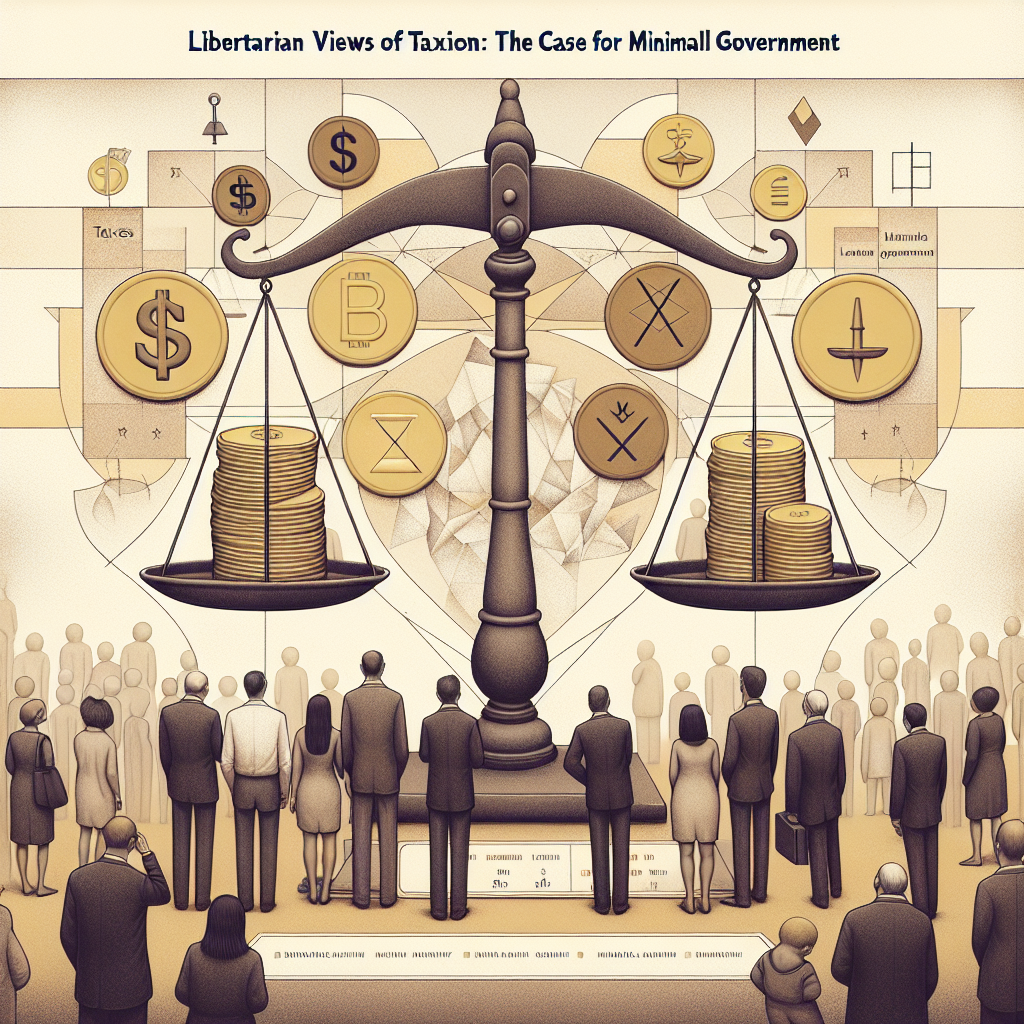Libertarian Views on Taxation: The Case for Minimal Government
Taxation is one of the most debated topics in political discourse, and libertarians have distinct views that set them apart from other ideological groups. Understanding these views can provide clarity on their advocacy for minimal government and personal freedom. This article explores the libertarian perspective on taxation, highlighting the fundamental principles that underpin their stance.
Understanding Libertarianism: Principles and Foundations
Libertarianism is a political philosophy that champions individual liberty, personal responsibility, and minimal government intervention in personal and economic matters. At its core, libertarian ideology is rooted in the belief that individuals own their lives and the fruits of their labor. Therefore, taxation, as a form of government intervention, is often viewed as an infringement on personal freedom.
The Non-Aggression Principle
One of the cornerstones of libertarian thought is the Non-Aggression Principle (NAP). This ethical stance asserts that the initiation of force against others is inherently wrong. Libertarians argue that taxation can be considered a form of coercion since it typically involves the threat of penalties or imprisonment for non-compliance. Therefore, from a libertarian perspective, taxation violates the fundamental principle of voluntary exchange and individual autonomy.
Taxation: A Necessary Evil or an Infringement on Freedom?
Libertarians often find themselves at odds with the mainstream debate on taxation. While some argue that taxes are necessary for funding public services, libertarians contend that these services can be better managed through voluntary means rather than through enforced taxation.
The Argument Against Progressive Taxation
Many libertarians oppose progressive taxation, where tax rates increase with income. They argue that this approach punishes success and disincentivizes hard work and innovation. Instead, libertarians advocate for a system that treats all individuals equally, often suggesting a flat tax rate or even a complete elimination of income taxes.
Alternatives to Government Funding
Libertarians posit that many services provided by the government, such as education, healthcare, and infrastructure, can be more efficiently managed by the private sector. They advocate for alternatives such as voluntary donations, user fees, and private charity as viable methods of funding these services without resorting to taxation. This approach emphasizes the role of the market and individual choice in addressing societal needs.
The Economic Implications of High Taxation
From an economic perspective, libertarians argue that high taxation stifles growth and innovation. When individuals are taxed heavily, they have less disposable income to spend, invest, or save, which can lead to a slowdown in economic activity.
Encouraging Entrepreneurship
Low tax rates are often championed by libertarians as a means to stimulate entrepreneurship. By allowing individuals to retain more of their earnings, they can reinvest in their businesses or start new ventures, ultimately leading to job creation and economic expansion. The libertarian viewpoint suggests that a thriving economy can emerge from minimizing government interference, including taxation.
The Ethical Case Against Taxation
Beyond economic arguments, libertarians often appeal to ethical considerations when discussing taxation. They assert that individuals should have the right to choose how they want to spend their money rather than being directed by government mandates.
Personal Responsibility and Ownership
The libertarian perspective posits that personal responsibility is crucial for a healthy society. By reducing government reliance through lower taxes, individuals are empowered to make their own decisions about their finances, charity, and investment. This empowerment fosters a sense of ownership and encourages more thoughtful decision-making that directly benefits society.
Conclusion: Embracing Minimal Government Through Tax Reform
Libertarian views on taxation emphasize the belief in minimal government and personal freedom. By advocating for reduced taxation and exploring alternatives to government funding, libertarians argue for a society where individuals are empowered to make their own choices without coercion. Understanding these perspectives can facilitate broader conversations about the role of government in our lives and the ethical considerations surrounding taxation. In a world where freedom and individual responsibility are increasingly valued, the libertarian case for minimal government remains a compelling argument worth considering.
Share this content:












Post Comment